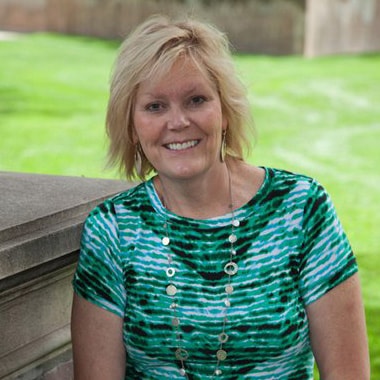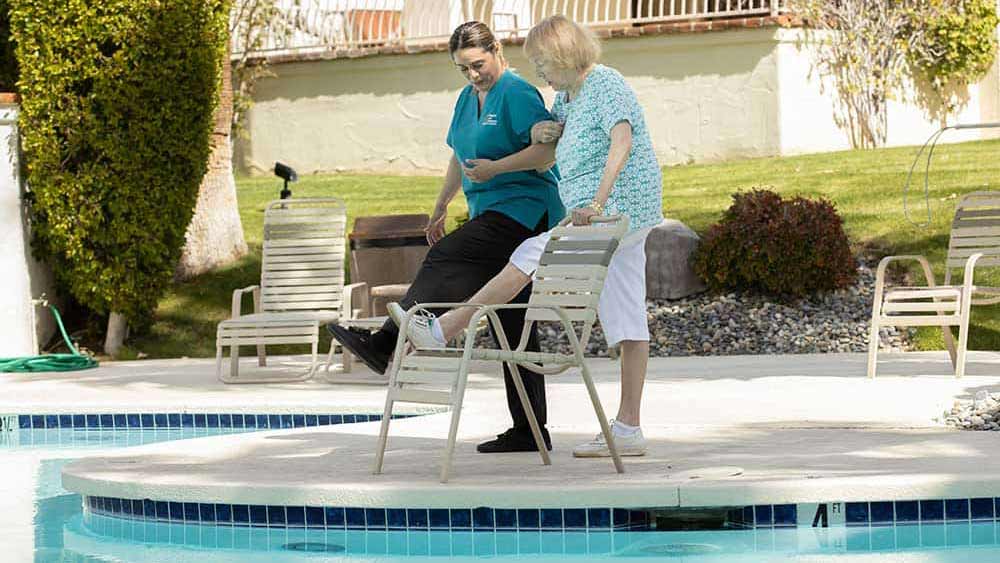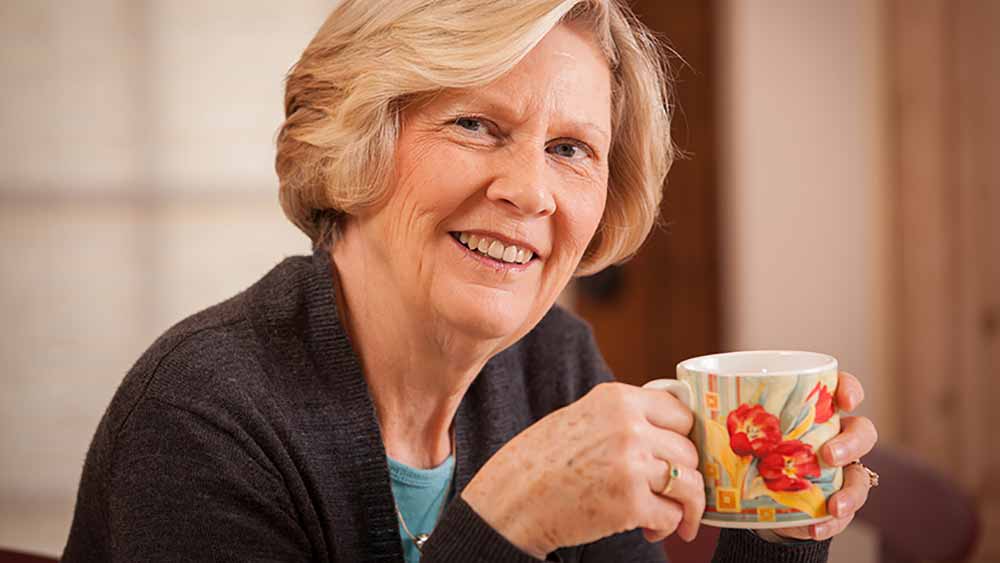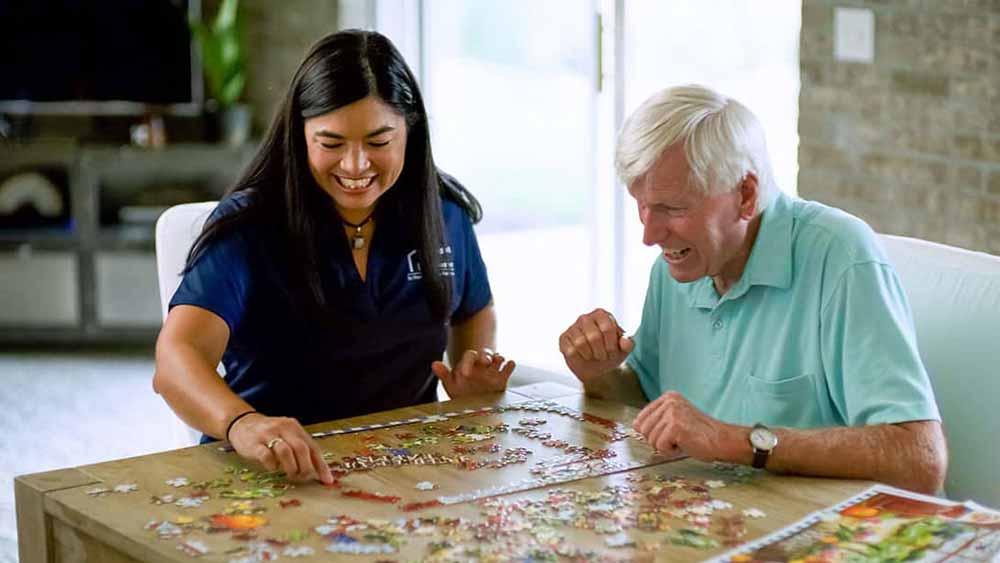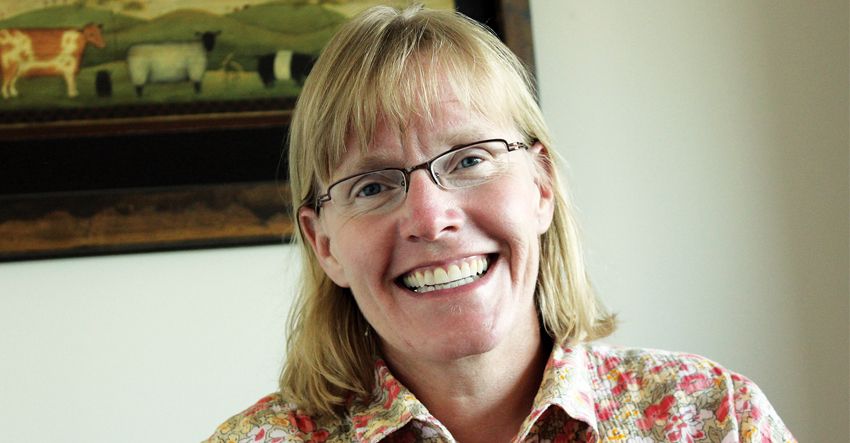

10 Frequently Asked Questions for Gerontologists
Professor Julie Masters is the Chairperson of the Department of Gerontology at the University of Nebraska Omaha. She has a doctorate in community and human resources with a specialization in gerontology and has been teaching gerontology courses for 30 years. Today, the programs she teaches focus on end of life. Right at Home spoke to Dr. Masters in July to learn more about gerontology and address some common questions about the ever-changing field of aging.
1. What is gerontology?
Gerontology is the study of the physical, psychological and social aspects of aging. The physical might include, What can I do to enhance my overall well-being? If there were a magic bullet to aging, it would be exercising and taking care of yourself. The psychological includes things like intelligence, memory, creativity and wisdom. The social aspects of aging might be relationships, work, retirement and family. What’s lovely and elegant about gerontology is that it touches all aspects of a person’s life. Where do I live? How do I live my life? Do I have the resources to sustain the kind of life I’m accustomed to? All those considerations come into play.
2. What is a gerontologist?
A gerontologist is someone who has an advanced education in the field of gerontology, the study of aging. Gerontologists have a formal education degree in gerontology. A gerontological specialist is someone who has a minor or certificate in gerontology.
3. What is geriatrics?
Sometimes people will interchange gerontology with geriatrics, but geriatrics is a medical specialty that focuses on the health of the older population. A geriatrician, also known as a geriatric physician, is someone who is either a family practice or internal medicine doctor who has completed additional training (a residency or fellowship) to be able to work with older people. There are also geriatric nurse practitioners, for example, who are registered nurses with additional education and training in the field of geriatrics.
READ MORE: 10 Most Frequently Asked Questions for Geriatric Nurse
4. At what age should I start thinking about my own aging process?
If I ruled the world, every baby born would be assigned a pediatrician and a geriatrician. This is a gerontological view. Aging is lifelong. Aging doesn’t start at 65. In our classes at the university, we have students start thinking about their own aging when they’re 18, 19 and 20 years old. For instance, when I was in my teens and 20s, particularly as a woman, I should have focused on building my bone mass, because that was when I set myself up for osteoporosis later in life. If I had worked with a geriatrician back then, he/she would have told me to focus on eating fruits and vegetables, getting sufficient quantities of calcium, because geriatricians look at one’s total life.
5. What does a gerontologist do?
For the first time in history, we have more older people than ever before. In 2020, there will be 77 million people aged 60 and older; by 2029, the baby boomer population will all be 65 and older. We are now living the aging phenomena. It takes people who can see past the problem to see the opportunity. As people age, they sometimes encounter problems — health issues, problems with activities of daily living. Gerontologists are here to think, What can I do to help enhance somebody’s life?
6. When should I seek the assistance of a gerontologist or a geriatric specialist?
In a perfect world, we’d be proactive about our aging instead of waiting until there’s a health crisis. We should be thinking about this sooner rather than later. But many of us don’t seek help until we’re sick. So most people seek help from a gerontologist or a geriatric specialist when they have to make care decisions for an older loved one.
READ MORE: Frequently Asked Questions for Aging Life Care Professionals
7. What is happening with aging in America?
We are making advances in terms of who is living into old age — the aging population has become more diverse. So if I were in the independent or assisted living/retirement home industry, I would have to change the way I do business. And we can’t always rely on family as caregivers, so that’s where we need experts in the field of aging who can help decipher the situation and understand how to deliver the best care possible.
8. Do gerontologists work with other people in senior care?
Absolutely. Gerontology is multidisciplinary. For instance, in our department, we have people who are formally trained in gerontology, but we also have someone whose background is in neuroscience and another person whose background is in psychology. What makes the field so productive is that you have people looking at aging from different vantage points in trying to understand how best to serve an older person.
9. Where do I find a gerontologist?
Often someone whose background is in gerontology will be working in an aging field or an organization serving older adults. For example, a gerontologist may work for a care management organization, an Area Agency on Aging or a senior living community and can help you with resources in the community.
10. How does a gerontologist help with everyday living?
Gerontologists look at the big picture. Where are you having some challenges? Are there things that might be missing from your life that we could help recover or restore? What can we do to help you maintain your connection to the community? We come up with services and resources that allow people to age with dignity. Gerontologists also find ways to allow and encourage the notion that aging is not that older people just take; older people can also give and still contribute to others.
My concern is that we are just letting aging happen to us, instead of being deliberate and intentional in how we think about the aging experience. The kind of people I want to see in our classrooms have a heart to care for older people and are going to have the staying power to be inventive enough to come up with useful, helpful and powerful solutions to make aging better.




